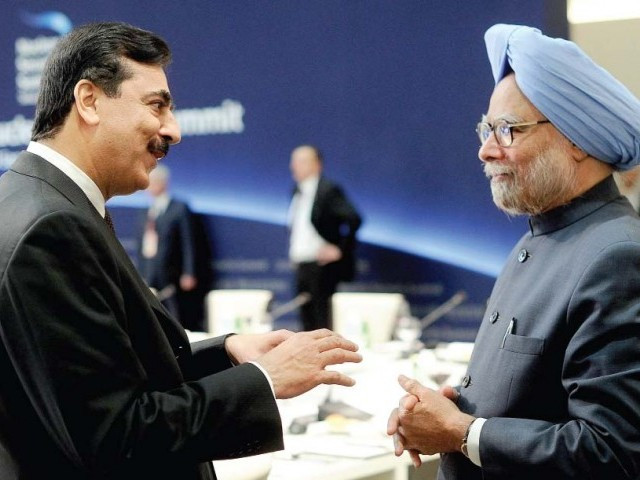On a historical note, the American and Pakistani leadership of the 1980s sought to eradicate the USSR’s geo-strategic agenda in Afghanistan by training large numbers of local and foreign militants in the name of ‘Islamic jihad’. These militants were indirectly funded and trained by the CIA and the ISI under ‘Operation Cyclone’.
India, being Pakistan’s natural enemy, provided logistic support to the USSR, and also carried out various espionage operations against it through its external intelligence agency, Research and Analysis Wing (RAW). However, in the post 9/11 world, the geo-politics of the region drastically changed due to the ongoing war on terror against the same militants who were trained in the 1980s.
When the Taliban rose to power in Afghanistan in 1996, the only three countries which officially endorsed it were Pakistan, Saudi Arabia, and the United Arab Emirates. All the planning which was necessary to bring the Taliban in control was conducted by army officials under the supervision of the ISI and late Interior Minister and PPP leader Major General (r) Naseerullah Babar.
Pakistan's political aim was to maintain Afghanistan as a satellite state to secure the western border. However, the September 11, 2001 attacks on the United States changed the dynamics of global politics; the Bush administration decided to launch a full scale invasion of Afghanistan on October 7, 2001 to topple the Taliban regime which had allegedly provided safe haven to Osama bin Laden.
A number of countries, which included Pakistan’s military rule under Musharraf, along with Afghan rebel leaders from the Northern Alliance consisting of Uzbek, Tajik and Hazara communities, later joined the offensive to topple Mullah Omar’s regime to install a Western oriented democracy under Hamid Karzai. This was the best time for India to jump into Afghan affairs as Karzai was considered a trustworthy ally.
The economic interests of India and Pakistan in Afghanistan are similar, but they differ as far as handling security affairs are concerned. Christine Fair in her assessment of Indian interests in Afghanistan writes:
The events of September 11, 2001, presented opportunities for India, which had been largely shut out of Afghanistan throughout the Taliban period. Since the ouster of the Taliban, India has worked to become Afghanistan’s most important partner for reconstruction in recognition of the country’s strategic importance for India within and beyond the South Asian region.
Post 9/11, India has reassessed its foreign policy towards Central Asian Republics, and forged a friendly alliance with Iran for economic gains. It has also started importing Indian goods to Afghanistan due to their common opposition to the Taliban. In addition, India has provided manpower and funding worth billions of dollars for the construction of Afghan infrastructure across key Afghan provinces and major cities like Kabul and Jalalabad.
However, it must be noted that despite the removal of the Taliban, Pakistan did not weaken its hold on Afghan affairs as it also provided similar economic assistance, albeit of a lesser amount. Not only this, but it has also constructed the deep sea Gwadar port with the assistance of China in the restive province of Balochistan to facilitate trade with the land-locked Afghanistan and CARs; this also reduced dependency on the Middle-Eastern and Iranian sea ports.
Afghanistan, being rich in minerals, has become a focal point of strategic interest for all foreign stakeholders especially Iran, Pakistan, and India. The two most important multi-billion dollars projects of the entire region, 'Turkmenistan-Afghanistan-Pakistan-India (TAPI) gas pipeline' and ‘Iran-Pakistan-India (IPI) gas pipeline’, have secured partial investment from international companies, but are being temporarily put on-hold because of the lack of Indian interest, potential security issues emancipating from Baloch and Afghan insurgents and US pressure in the case of the IPI Project owing to the US-Iranian stand-off .
TAPI project’s economic potential, once achieved, can make South Asia independent in terms of natural resource usage for gas and electricity.
In terms of security, India supplied high altitude warfare equipment worth around $8 million to the Northern Alliance, and also renovated its first international airbase in Tajikistan called ‘Ayni’ to counter Pakistan from the north-west. India’s spy agency RAW has also been allegedly involved in clandestine operations against Pakistan via the Pak-Afghan border. They are suspected of training and supporting the Baloch Liberation Army (BLA) insurgents in Balochistan and also providing logistic support to the Pakistani Taliban (TTP).
This can be further supported by a series of briefings to the local and foreign media by Pakistani generals who have portrayed India as a serious threat to Pakistan. Back in 2006, PML-Q leader Mushahid Hussain said:
The Afghan Police, the Border Security Force and customs officials facilitate the visit of Indian diplomatic staff and intelligence agents to border areas, and help them to hold meetings with dissatisfied pro-Afghan dissidents, anti-state elements, and elders of the area. In this context, meetings of tribal elders are arranged by the Afghan intelligence agency (Riyast-i-Amniyat-i-Milli or RAM) at the behest of those RAW officials who serve in different diplomatic offices of India in Afghanistan.
During the London Conference on Afghanistan in January 2010, the Western Allies proposed the idea of giving Pakistan a complete role in Afghan peace talks, and allowing it to train the Afghan army on a limited scale. This increased Pakistan’s role in directly negotiating with the Afghan Taliban, but resulted in Indian dislike.
India has accused Pakistan based militant groups such as Lashkar-e-Taiba (LeT), Jaish-e-Mohammad and the Haqqani Network in North Waziristan for inciting violence in both Afghanistan and India against Indian subjects in connivance with the ISI. It is no news that India blames Pakistan for the 2008 Indian embassy bombing in Kabul and the 2008 Mumbai attacks. According to Pakistani Journalist Ahmed Rashid:
Any sign of excessive Pakistani influence in Afghanistan would immediately prompt a reaction from India, Iran, China and the Arab Gulf states, which could include backing anti-Pakistan proxies in Afghanistan making it even more difficult for Afghanistan to achieve peace and stability.
At the same time, US efforts to forge a strategic relationship with India have caused Pakistan to rethink its relations with the US. Pakistan is particularly concerned that it has consistently fought the violence of the global war on terror along with bearing more than $67 billion economic losses, while continually being asked to “do more”.
It also accuses the US of discrimination regarding the Civilian Nuclear Deal which Pakistan believes it had the right to have on equal level with India back in 2006. Pakistan has also pressured the United States to limit India's role in Afghanistan as it may cause economic and security meltdown of the country through global diplomatic pressure and increased intelligence operations of RAW.
Personally, I believe that both nations are unwilling to bow down to each other in terms of spy warfare, and shall continue to assist insurgent operations against one another in the long run. On the economic front, both are somewhat willing to positively invest in Afghanistan and derive the most out of local projects. TAPI pipeline is one such project that will lead to an increase in security and investment.
The national interests of both nations are largely opposing, and we may not be able to see progress in the near future regarding security dimensions, until and unless a miracle happens and their relationship changes.



COMMENTS
Comments are moderated and generally will be posted if they are on-topic and not abusive.
For more information, please see our Comments FAQ